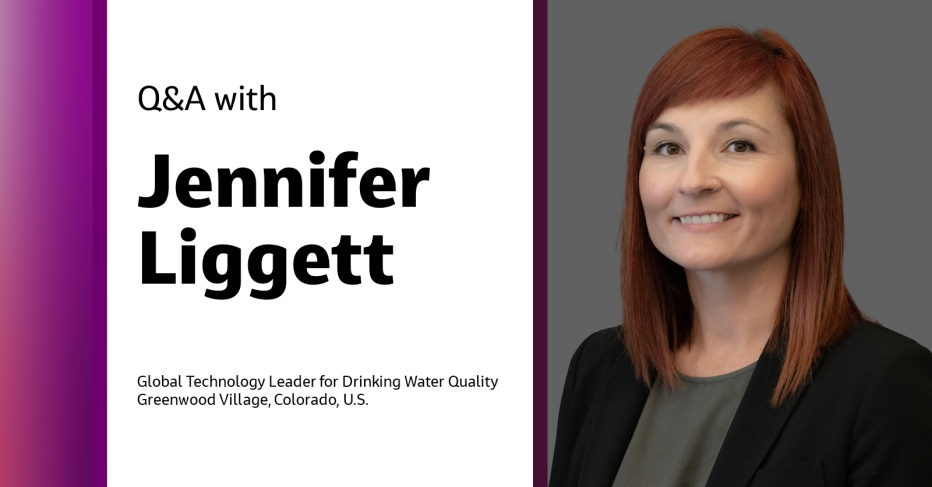
At Jacobs, we’re committed to solving the world’s water challenges. In developed countries, the delivery of safe and reliable drinking water is often taken for granted – and yet our water systems continue to face new and complex threats, from climate change to emerging contaminants. In many other parts of the world, sourcing drinking water remains a daily struggle. We’re constantly pushing for more innovative and cost-effective solutions to provide more people with access to safe drinking water – especially as populations grow, water shortages intensify, and regulations tighten.
For this Q&A, we connected with Jacobs Global Technology Leader for Drinking Water Quality, Jennifer Liggett. Jennifer is passionate about helping communities with their drinking water quality challenges. In the U.S. she’s working to address issues like Lead and Copper Rule compliance, and she’s also an advocate of the non-profit organization Water For People, which helps to provide safe water and sanitation services to millions of people worldwide.
Hi Jennifer. Tell us a bit about your career background and your role at Jacobs.
I’m the global technology leader for drinking water quality and I’ve been solving drinking water quality challenges for over 14 years. Before joining Jacobs in 2015, I worked as a research chemist at the U.S. Environmental Protection Agency’s (EPA) Office of Research and Development where I focused on the analysis of pipe corrosion. Prior to that, I earned a Bachelor of Science in Environmental Studies and a Master of Science in Environmental Science from the University of Cincinnati, Ohio. I now lead a team of technologists and consultants who help our clients provide high-quality drinking water to their customers. We address source water quality issues as well as challenges in the distribution system and within buildings, such as corrosion control. We also help with regulatory compliance and the prevention of issues like nitrification, Legionella, discolored water and disinfection byproduct formation.
What are the main drinking water quality challenges facing your clients right now?
Supply chain disruptions are currently a challenge – particularly delays in the delivery of chemicals used in water treatment processes – and our clients are also facing challenges with resourcing, staffing and having to do more with less. Climate change is also creating problems such as water shortages that can impact water quality. On top of this, current and upcoming regulatory changes for drinking water contaminants like lead are requiring water systems to quickly adopt new practices.
“At my previous job as a research chemist, there were limited opportunities for career advancement or mobility. I recognized that was something I wanted for my career and took the leap from research into consulting. Jacobs has provided me and my team with the opportunities to grow our careers and solve global drinking water quality issues.”
In the U.S., the recent revisions to the federal Lead and Copper Rule (LCR) have received a lot of attention. What new requirements are water systems facing?
The revisions to the Lead and Copper Rule are significant and will require attention to detail and time to understand and implement. The new requirements for water systems relate to the creation of lead service line inventories, lead and galvanized service line replacements, water sampling in homes, schools and childcare facilities, corrosion control treatment and public education and outreach.
There are also forthcoming Lead and Copper Rule Improvements due to be released by the EPA in the spring of 2023. The intention of these improvements is to strengthen key elements of the latest revisions to the rule, including replacing all lead service lines, updated compliance sampling in homes, changes to the action and trigger levels for lead and enhancing equity across service line replacements to protect public health.
The challenge many water systems have faced so far has been the uncertainty of the initial promulgation of the LCR revisions, followed by delays and some changes to the final rule that became effective in December 2021. This uncertainty created confusion around an already complicated rule and, though the intention of the revisions is to reduce lead and copper exposure, it has caused some water systems to delay planning or implementation because the rule either wasn’t final and effective, or that there are too many unknowns and lack of clarification to start a program.
How is Jacobs supporting water utility clients with their LCR programs?
We’re helping clients by clearing up the uncertainty around the regulations and planning and implementing compliance programs. We’ve created an expert and passionate team, some of whom have decades of experience working directly with water systems and focusing on corrosion research, corrosion control studies, regulatory compliance and the Lead and Copper Rule Revisions. Our team members are thought leaders within the water industry and have chaired and created American Water Works Association committees and subcommittees, published articles, authored chapters of industry standards, presented at local and national conferences, created eLearning and training materials and met and coordinated with State regulators. This isn’t just a job for our team. It’s our passion.
As well as our multiple national experts focused on the LCR, we also have data management and finance experts. Together, this team allows us to provide holistic and equitable solutions for LCR compliance, from planning to implementation and beyond. We’re supporting clients in a number of ways and customize each solution to the specific client. For example, I’m currently working with the Salt Lake City Department of Public Utilities and I’ve helped with items from program management to lead service line inventory development and staffing analysis. I’ve also worked closely with our finance experts to develop long-lasting solutions to fund lead service line replacement programs and other elements related to LCR compliance.
If you could provide one key piece of advice to water utilities on LCR compliance, what would it be?
If you haven’t, get started now! The clock is ticking down to the compliance date in October 2024 and many components of the rule are driven by the creation of the lead service line inventory.
In your role at Jacobs, you also serve as an advocate for the non-profit organization Water For People. Tell us about their work and how we can get involved.
I’m a co-chair for the Jacobs Water For People Employee Giving Campaign Steering Committee. Water For People is a non-profit that was established in 1991 and develops partnerships with local organizations and governments to provide support for clean water and sanitation services. Jacobs and Water For People share a common goal of working to provide clean water and sanitation equitably across the globe. To date, Jacobs has raised over $4.4 million in support of Water For People’s mission – and our latest annual Employee Giving Campaign kicked off this month! There are many ways to get involved, including donating to the Jacobs Employee Giving Campaign or becoming an office champion if you’re a Jacobs employee, volunteering through World Water Corps, or supporting local efforts such as ThirstyFest.
If you aren’t working, what would we be most likely to find you doing?
I live in Colorado and one of my favorite activities is hiking. Otherwise, you can find me traveling to visit family, volunteering with Project Angel Heart, baking, working on home projects and gardening with my husband – and taking pictures of my cats!
What do you enjoy most about being part of #OurJacobs?
At my previous job as a research chemist, there were limited opportunities for career advancement or mobility. I recognized that was something I wanted for my career and took the leap from research into consulting. Jacobs has provided me and my team with the opportunities to grow our careers and solve global drinking water quality issues. The best part of my job is working with my team, and others at Jacobs, on projects we are all passionate about.
What advice would you give to young professionals?
Be your own advocate. Challenge yourself with new opportunities and experiences. The leaders within your company are never too busy to help you and genuinely want you to succeed. None of us got where we are in our careers without mentoring and help from others.
About the interviewee
Jennifer Liggett is the global technology leader for drinking water quality based in Denver, Colorado. Jennifer has over 14 years of research and consulting experience with distribution system water quality topics such as regulatory compliance, corrosion control studies, and nitrification and legionella prevention plans. She is a SME in LCRR.
You might be interested in...
-
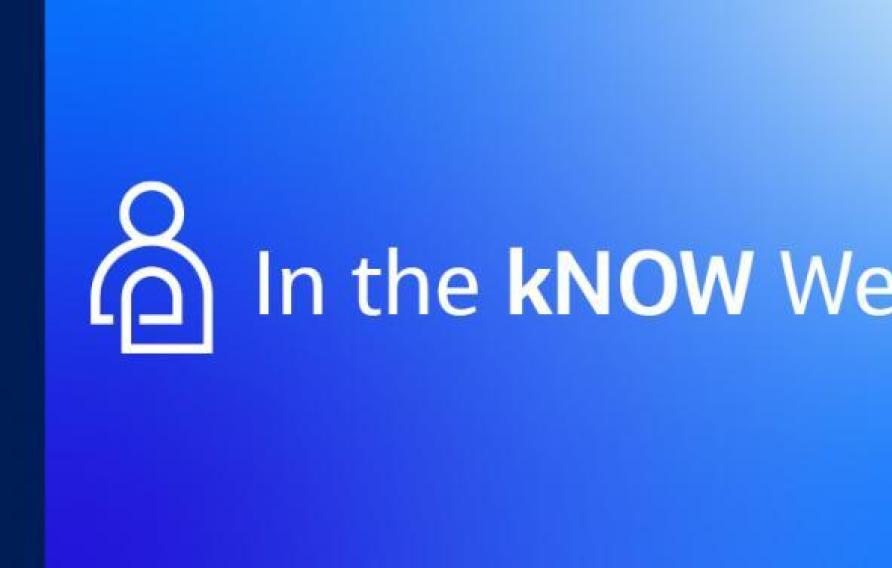 Webinars
WebinarsLeading on Lead: Long-Term Lead and Copper Rule Revisions, Compliance, and Funding
This “In the kNOW” webinar provides a high-level overview of the key aspects of the LCRR revisions and tools for compliance including examples of specific State requirements and information on available funding through the BIL. The LCRR adds more complexity, logistical challenges, and data management considerations and can have significant impacts on the 60,000 public water systems required to comply with the rule.
-
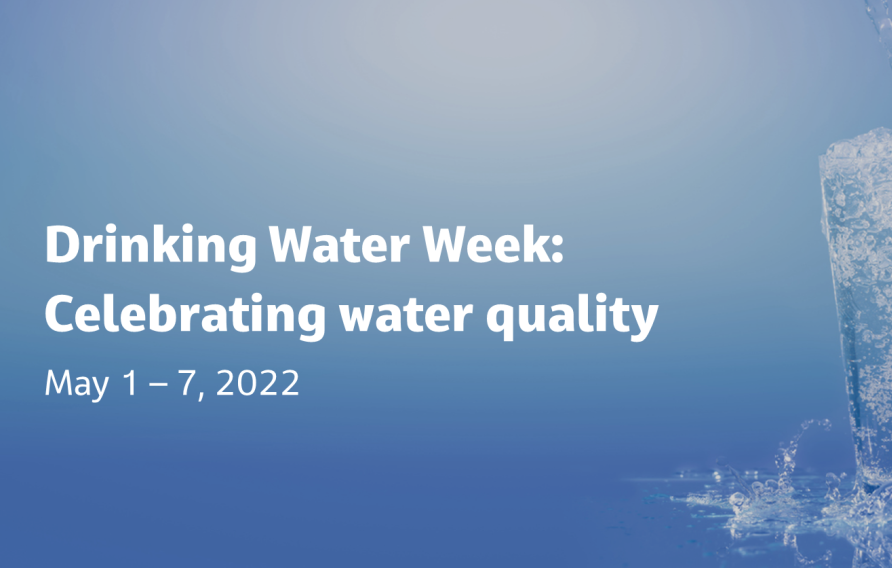 News
NewsDrinking Water Week: Celebrating Water Quality
Jacobs celebrates our water sector clients whose mandate to deliver high-quality drinking water faces new and complex challenges, from emerging contaminants to cybersecurity.
-
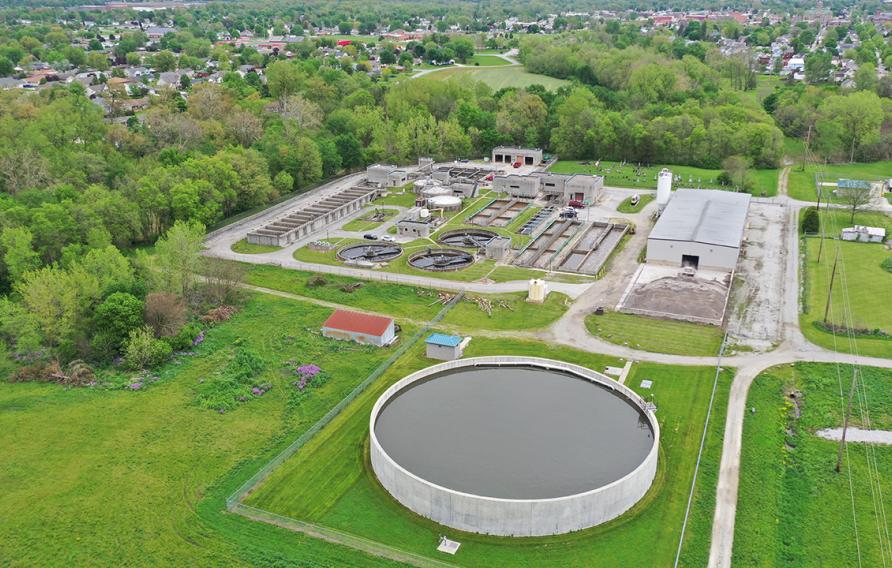 News
NewsA OneWater Story: Water Affects Us and Connects Us All
What do Wapakoneta, Ohio; Dubai, UAE; Neil Armstrong and Jacobs have in common? They’re all part of Celebrating World Water Day and its ties to OneWater.
-
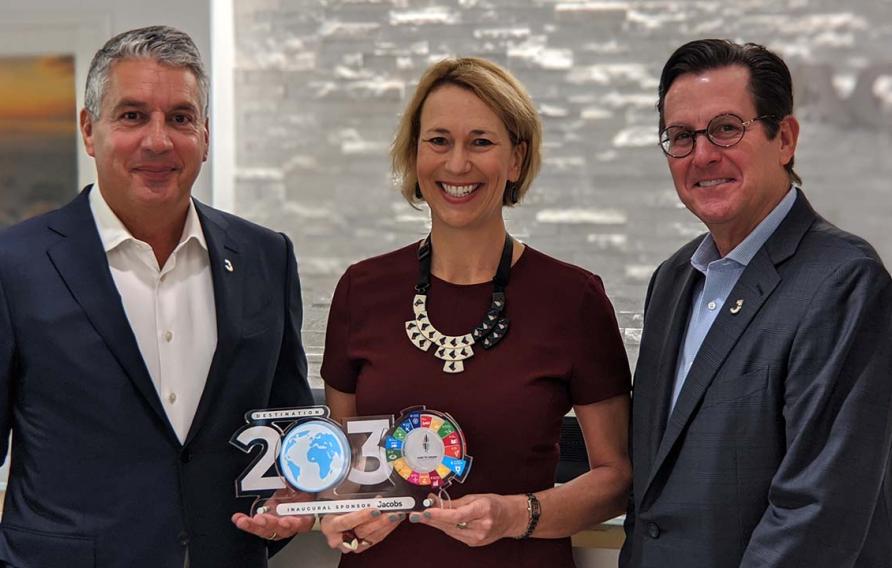 News
NewsJacobs Donates More Than $465,000 to Water For People
Expanding its commitment to helping end the global water crisis with sustainable solutions, Jacobs presented nonprofit organization Water For People with a donation check for $467,230 at Jacobs' January Board of Directors meeting. A combination of corporate and employee funds, the company's inaugural sponsor contribution will ignite Water For People's journey to Destination 2030, a 10-year initiative to help low- and middle-income countries achieve United Nations Sustainable Development Goal 6 – ensure availability and sustainable management of water and sanitation for all.













































